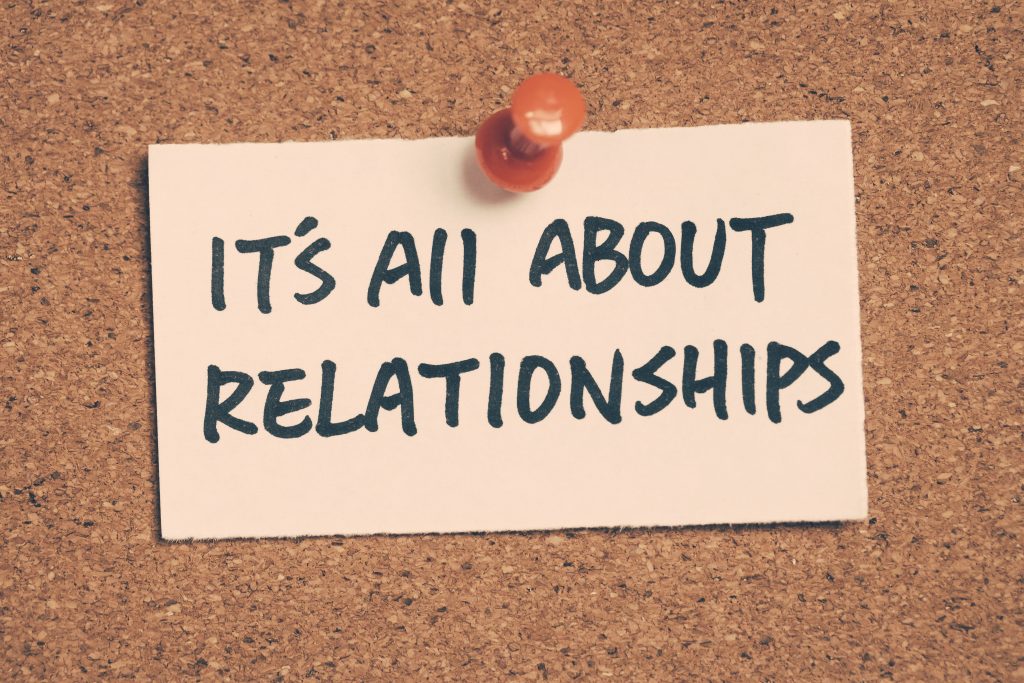How Many Relationships Do You Have?
How Many Relationships Do You Have?

How many relationships do you have? Do you ever stop to think of the many and different types of relationships you have at any one time, let alone during the course of a lifetime? This month we’ve been looking at the importance of relationships and at love relationships in particular. But what about the other types of relationships that create not only a Surround Sound System of Support but bring joy—and longevity—to life?
Multiple and Varied
There are many types of relationships that we hold throughout our lifetime. There are friendships, acquaintances, work or professional relationships, community or group relationships, place-based relationships such as neighbors, just to name a few. And of course, there is relationship to self, and relationships with family members or relatives.
At 100 Year Lifestyle we talk about two different types of families—traditional and inner circle. Traditional families are the ones you are born into or marry into. Inner circle families are those you choose—families such as work, church, sports, and school. Inner circle families can be created around shared interests, shared beliefs, even geography. Should you lose important traditional family members to death or divorce, or lose inner circle family members as a result of a job change or a move, you might lose some of your Surround Sound System of Support, but not all.
The importance of these multiple, varied relationships throughout our lives cannot be underestimated. According to Harvard Health:
Social connections like these not only give us pleasure, they also influence our long-term health in ways every bit as powerful as adequate sleep, a good diet, and not smoking. Dozens of studies have shown that people who have satisfying relationships with family, friends, and their community are happier, have fewer health problems, and live longer.
Ups and Downs
These relationships can play tremendous roles during our lifetime, including helping us navigate an ever changing world. But it’s not just that there is an upside to having many relationships in our lives. There is actually a downside to not having relationships in our lives. The same Harvard Health article went on to say:
Conversely, a relative lack of social ties is associated with depression and later-life cognitive decline, as well as with increased mortality. One study, which examined data from more than 309,000 people, found that lack of strong relationships increased the risk of premature death from all causes by 50% — an effect on mortality risk roughly comparable to smoking up to 15 cigarettes a day, and greater than obesity and physical inactivity.
 Expectations
Expectations
Over time you will find that friends or even circles of friends can come and go. During the course of your lifetime some of your support systems will just dry up. Certain circles might no longer share the same interest or values. People do change over time. Disconnecting is always an option, but so is changing your expectations. For example, if alcohol is a destructive pattern, you may need to disconnect from happy hour friends or your wine tasting club. On the other hand, if you find your family is no longer the rock solid support system they once were, but you cannot or do not want to disconnect from them, you can reset your expectations. If they are unable or unwilling to give you the support you need, stop looking for support there.
Should you find yourself lacking the support you need, find a new circle of friends, it’s never too late! Take up a new hobby or interest. Engage with new groups within your community. Try something you’ve always wanted to try and make new friends in the process.
Living your 100 Year Lifestyle means being aware of the choices you make, and holding a long-term vision of the healthy lifestyle you desire when you make them. Make a choice today to invest in yourself. Keep yourself healthy for yourself and all the people in your life. Remember, 100:100—100% for 100 years! Find a 100 Year Lifestyle provider to help you on your journey today!
More to think about:
- SHARE THIS POST

 Expectations
Expectations
